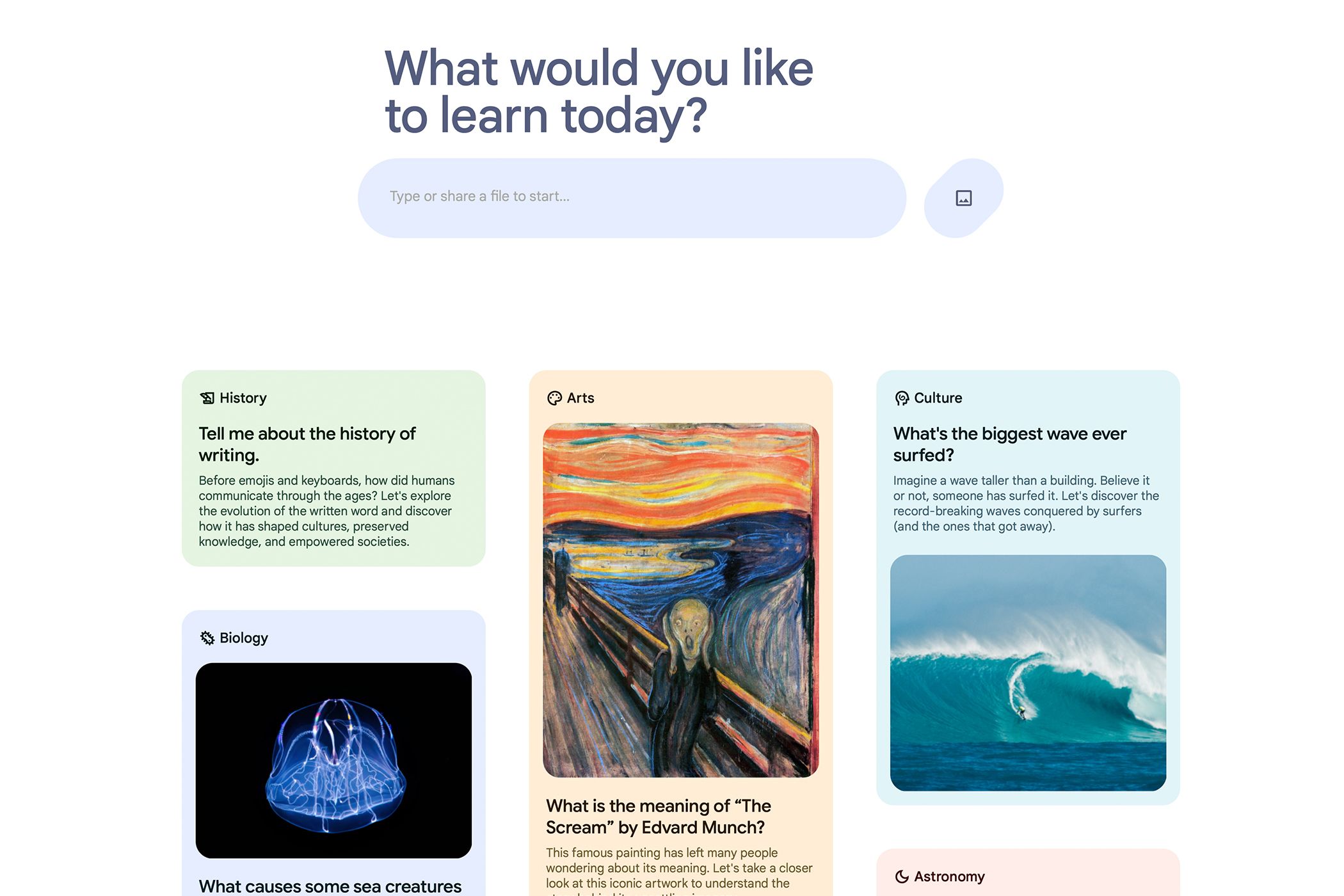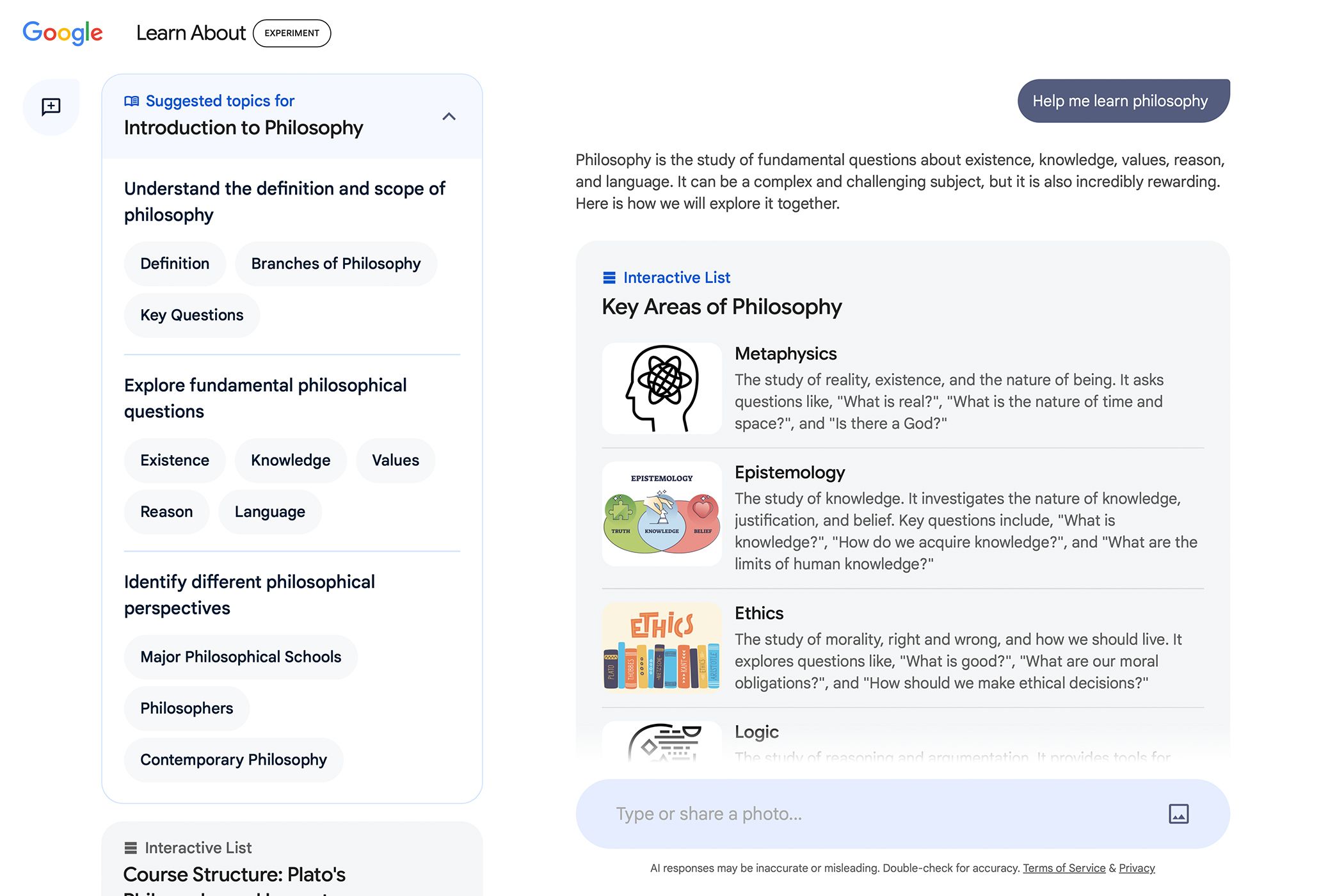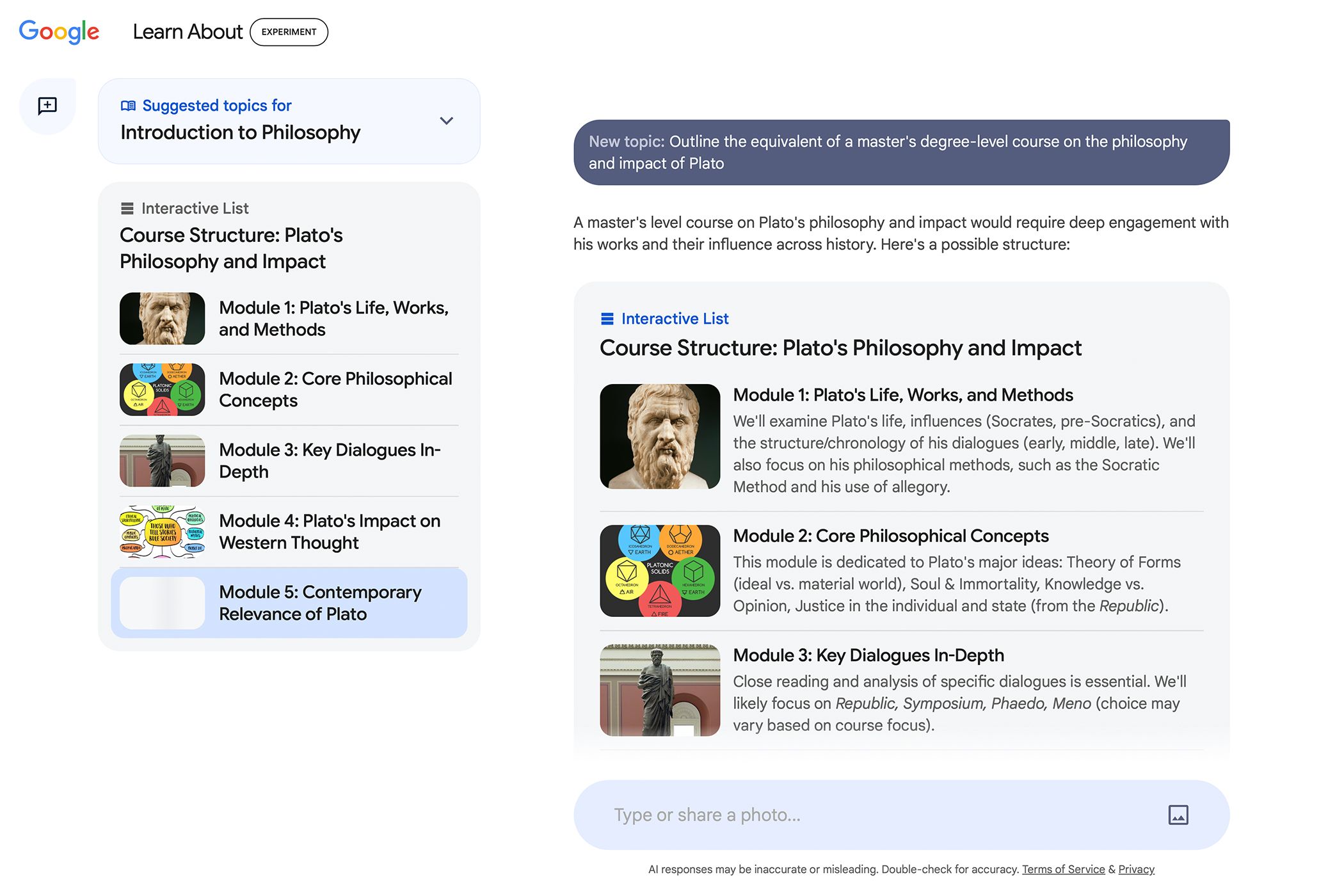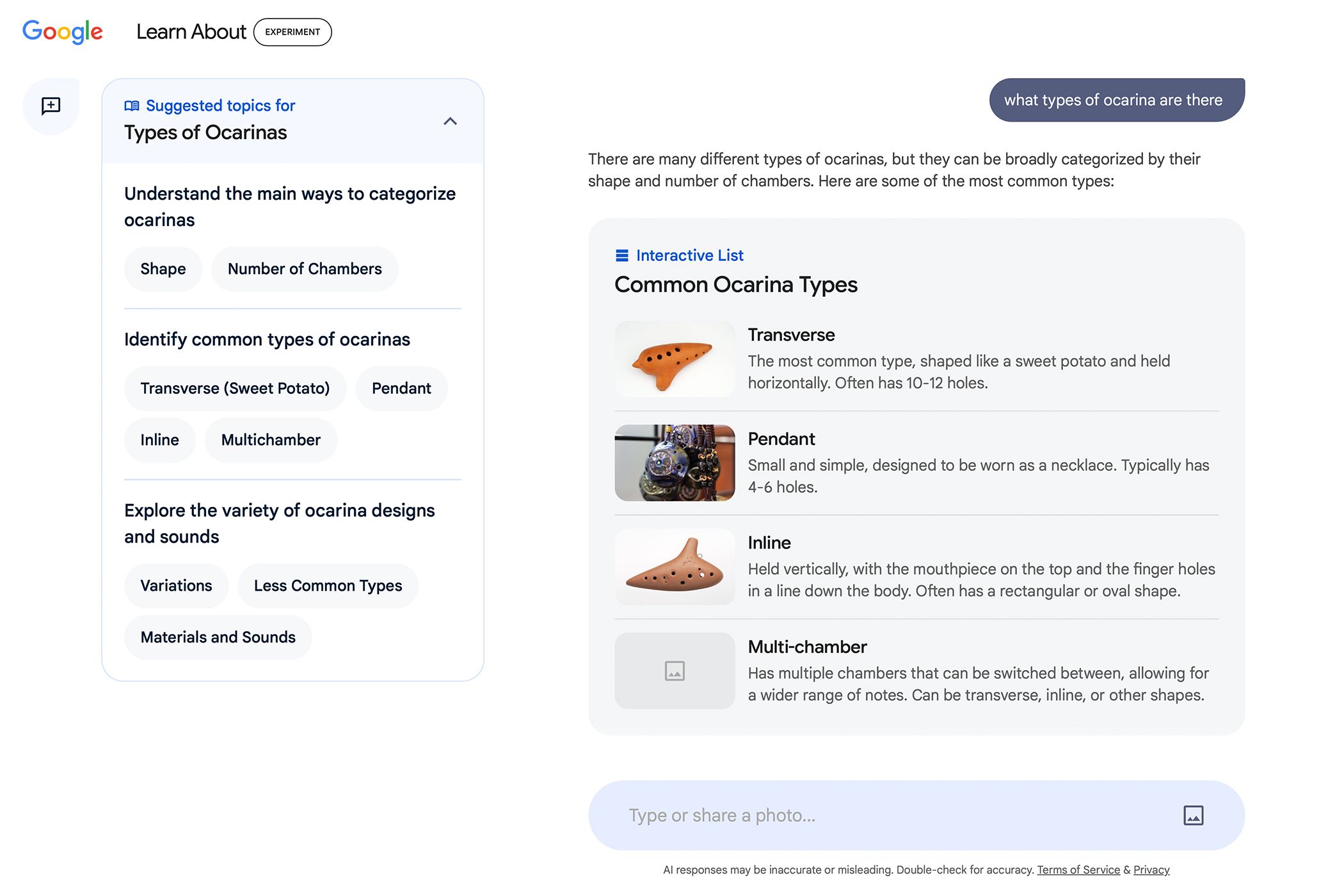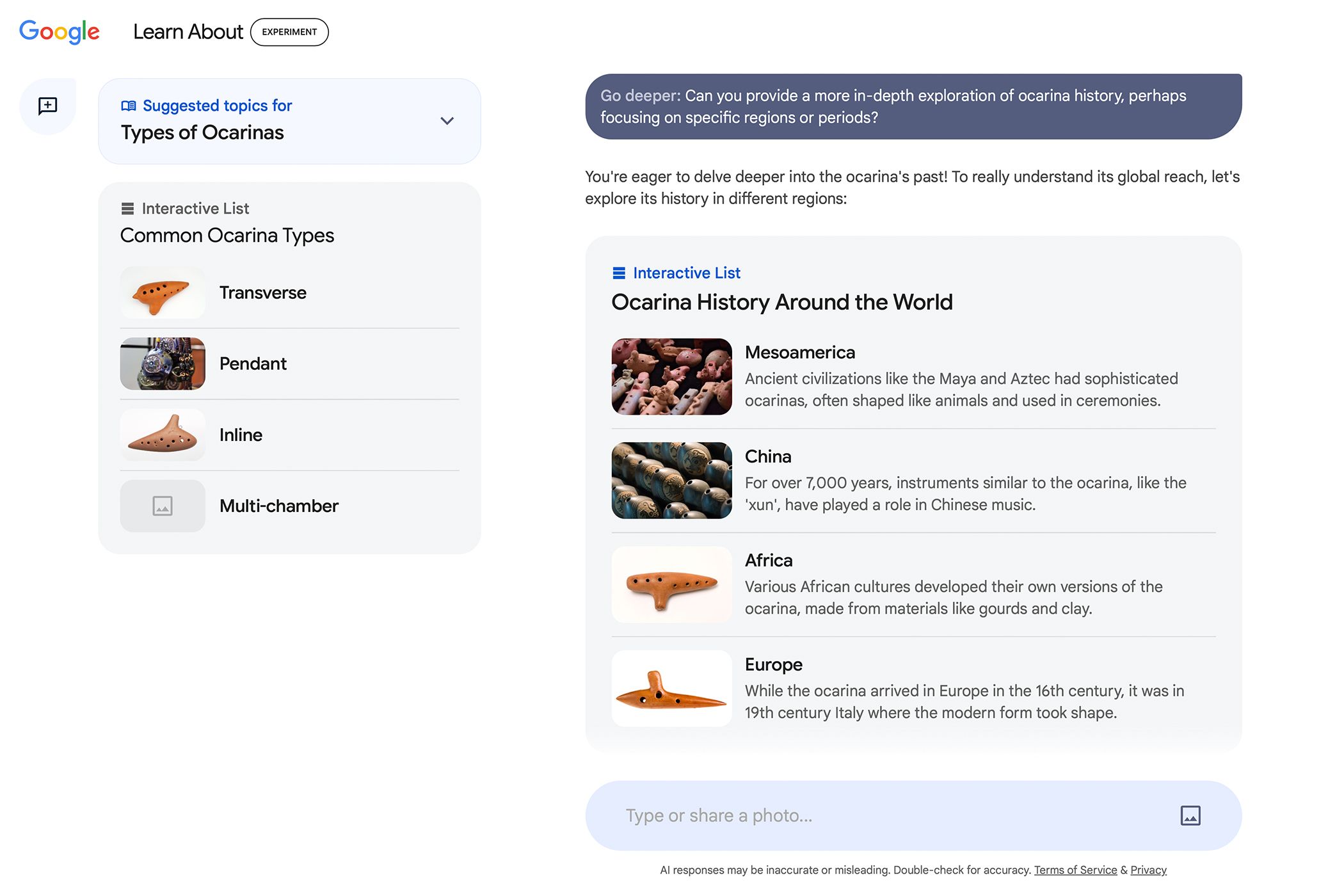Ever wanted to learn more about something in a short time? Google’s new Learn About AI-powered search tool is just what you’re looking for, blending simple AI-powered chat conversations with its vast range of sources. And the best part is that it’s free, and you don’t need to learn any AI prompt engineering skills to create a unique learning experience.
Google Learn About Makes Learning Easy and Organized
Google Learn About utilizes a combination of Google’s search functionality, Gemini LLM, and some prompt and formatting wizardry to turn a query for a topic into an organized, source-backed, foundational learning resource. When you prompt Learn About, it summarizes a topic, creates sub-topics to read further on, and provides actual sources for its information and further exploration.
Learn About also provides related photo and video media to your topic and shares suggested follow-up questions related to your topic. It can also, with limitations, use photos in prompts, though my experience with this feature was hit-or-miss, mostly miss. As competition encroaches on Google, such as with ChatGPT Search, this seems to be a defensive response to better implement AI.
Better Prompts Make Better Results
As with most prompt-based AI LLM tools, prompting with specificity and context will generally improve your results. For example, asking, “Help me learn philosophy,” will likely provide a broad overview of philosophical concepts, whereas more specifically, prompting, “Outline the equivalent of a master’s degree-level course on the philosophy and impact of Plato,” would result in much more specific, in-depth results.
This second prompt provides context by asking for a master’ s-level course equivalent and specificity by narrowing the query to Plato’s philosophy. Note how the subtopics for the Plato example are more detailed than the broad overview of philosophy.
Google Learn About Struggles With Niche Topics
While specificity can improve results from overly broad queries, too much specificity or asking about a highly niche topic can leave lackluster results. Because much of the information used on Learn About is derived from Google, if a topic is too niche or your parameters are too specific, Learn About’s LLM may struggle to answer your prompt.
I’ll use a highly niche topic for which I am well-versed, the ocarina (a musical instrument), and evaluate Learn About’s results. For the basics, the information is accurate, albeit surface-level, but there were a few unfortunate inaccuracies. For example, the image used for “Inline Ocarinas” was not actually an inline ocarina.
Other AI LLM tools suffer from inaccuracies on niche topics as well, but I had hoped that Learn About’s source-backed information would better avoid this issue. They’re not AI hallucinations, but it’s also not accurate.
Annoying Limitations Hold Learn About Back
Beyond inaccuracies on niche topics, Learn About has even more limitations in its current state, which I hope will be improved. First, conversations with Learn About are not saved, meaning if you get a great learning foundation on a topic and close the tab, all the provided resources will disappear. As this tool is new and mainly provides a foundation for deeper searches, this isn’t a huge deal, but being able to save conversations would be nice.
Moreover, importing Learn About conversations, sources, and information into Google’s AI note-generation tool, NotebookLM, would make this much more useful.
Additionally, Learn About mainly seems to be a regular LLM with a more unique graphic interface compared to ChatGPT. As mentioned in the article, it has all the limitations most LLMs have, and many of its features are simply re-prompting on the same topic. For example, the “Simplify” and “Go Deeper” suggestions rewrite your prompt, which makes sense but is a bit disappointingly simple.
Last, while Learn About’s most unique highlight is its utilization of Google-searched sources, some of the sources provided can be a bit random, only having some prompt keywords in common. Many of its sources are appropriate, but many could be improved.
Learn About Doesn’t Replace Original Sources
Learn About shines in its ability to quickly compile sources and information, but for the best learning, AI cannot replace actually learning from the original sources themselves. With luck, Learn About will overcome its flaws and limitations, such as saving conversations, and become a more reliable resource for research. However, it still cannot replace reading and analyzing original sources yourself.

